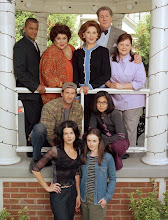Sunday, March 27, 2011
Book 3 Review - Moby Dick
(For some stupid reason I can't get this post to separate into paragraphs when I hit publish - even though I can see the paragraphs when I'm in edit mode!! So frustrating! So for now, I'll alternate colors to show different paragraphs... grr. If anyone knows how to fix this issue, let me know!) I finished Moby Dick about a week and a half ago, but to be honest I was so tired of the book at the time I needed a break from it. Hence the delay in blogging about it. I don't anticipate this post being terribly long, either. So - here it goes... I wish I had done a little more research on the book before I started reading it so I knew what to expect. I have a friend who does that with movies; she'll sit down and the start the movie without knowing much about it, but about 15 minutes in she has her computer out and she's looking up plot summaries and character info on different movie websites. I personally don't like to know the outcome of a movie/book, etc. before I watch/read it because I think it spoils the ending, but in the case of Moby Dick I really think knowing more details of the book before hand would have helped me get through it easier, and here's why: First of all Herman Melville seems to go off on tangents a lot in the book. I guess it's important to know a little about the set up and design of a whaling ship since that's where the majority of the story takes place, but I felt like the author detailed more than what was necessary. There were also such chapters as "The Whale as a Dish," "The Right Whale's Head - Contrasted View," and "Measurement of the Whale's Skeleton" that just seemed to drag on with facts and details that in the long run didn't contribute much to the action of the book. I read some articles online after I finished Moby Dick; one of which said: "Moby-Dick contains large sections—most of them narrated by Ishmael—that seemingly have nothing to do with the plot but describe aspects of the whaling business. Melville believed that no book up to that time had portrayed the whaling industry in as fascinating or immediate a way as he had experienced it. Early Romantics also proposed that fiction was the exemplary way to describe and record history, so Melville wanted to craft something educational and definitive." So, while writing history into fiction seemed to be fashionable at the time, I think Melville should have separated the history from the fiction. Maybe you disagree, and that's okay, but the history was incredibly boring to me. Probably because I'm not interested in whaling. Second - the white whale didn't show up until page 495. Yep. Four hundred and ninety five. Out of 521 pages. I thought there would be a lot more about the title character throughout the book, but I was definitely wrong. This was mostly thanks to the tangents explained above. Okay, enough complaining. On to what I DID get out of it; my own conclusions and such. Not long after Captain Ahab actually enters the scene (the narrator talks about him a bit before he actually appears) you learn about his quest - to hunt the white whale who had taken off his leg on a previous whaling venture. It didn't matter to him that the whaling ship didn't belong to him and that its purpose was to turn a profit on the voyage; revenge was all that mattered to Ahab. He quickly rallies the majority of the crew to join him on this quest (not that they could back out - having already been on the ocean some time). By the time Moby Dick was finally sighted and the crew began its three-day chase of the whale I swear I was starting to feel like Ahab in a way. I could feel Ahab's anticipation building; he had been searching for this whale for years. It was go time! I was surprised how fast the final chapters flew under my fingertips. After all the long, drawn-out descriptive chapters beforehand these final chapters were short and to the point. I was kind of disappointed - wasn't this supposed to be an epic battle? It was over so quickly. **This next part will reveal the ending of the book, so if you plan to read it yourself, you should probably skip it. As I read about Ahab being strangled and dragged from the small boat by his own whaling line that he had plunged into Moby Dick's side, and about the fate of the whaling ship and all but one of its crew members as it was sunk by the force of the white whale plowing into it, my thoughts turned deeply inward; I couldn't help but think about my decisions in life and draw some life lessons from the book: What are the goals and causes I am aiming for? Have I chosen them wisely, or am I making my decisions based on emotion and revenge like Ahab did? Are my causes worth fighting for? Are my actions positively influencing others, or are they the types of decisions that will ultimately drag me down and take others with me? Is the end result worthy of the battle?
Subscribe to:
Post Comments (Atom)



3 comments:
Woo hoo! Good job chicky. Good insights, too. Ones we all should look at, I'm sure!
Check in the HTML portion. Did you type this in Word or some other program?
Thanks, Steph!
Shelli - I don't understand HTML... and I typed it right here in Blogger as usual. That's why I'm confused that it suddenly doesn't do what I want it to.
Post a Comment